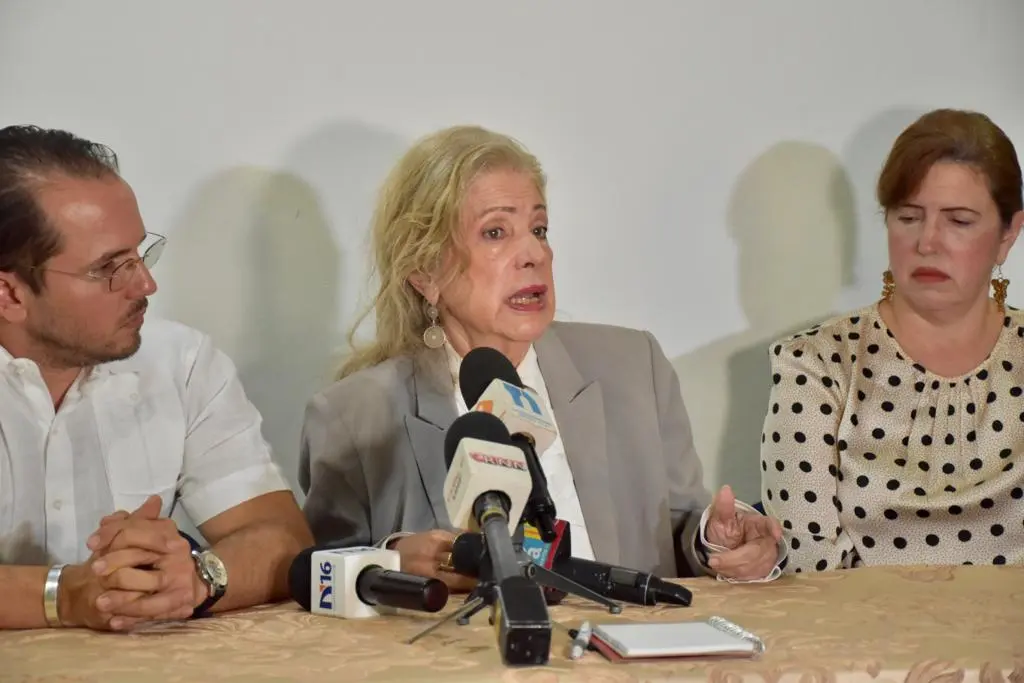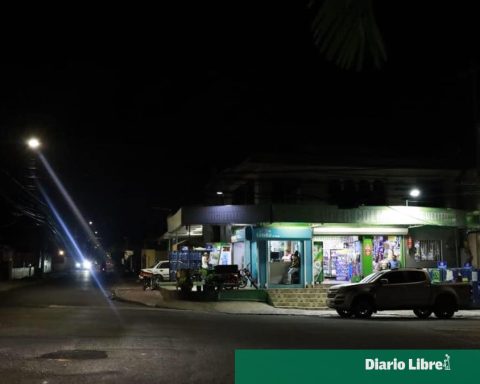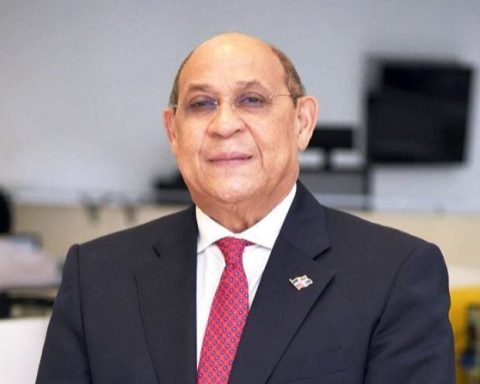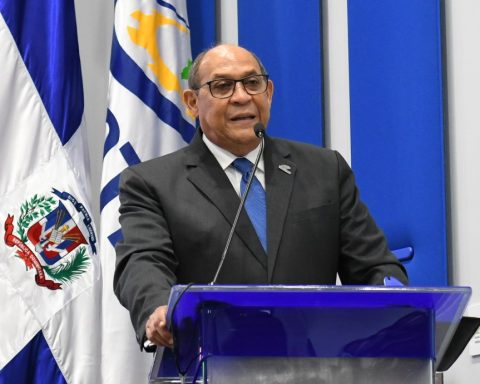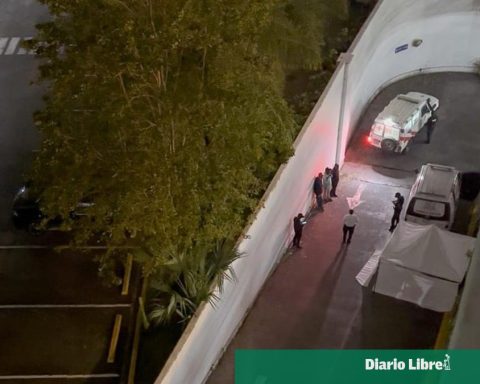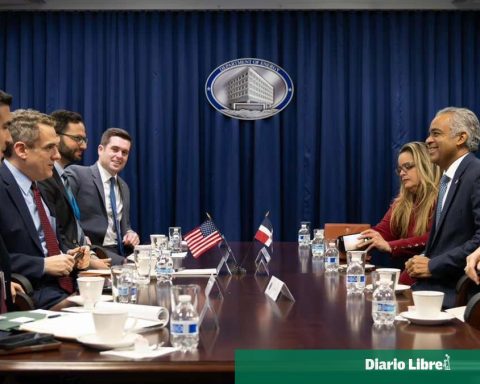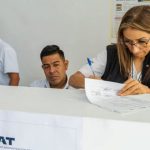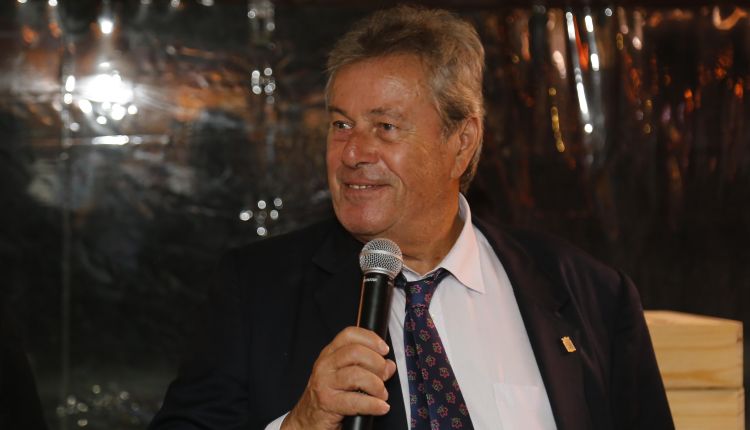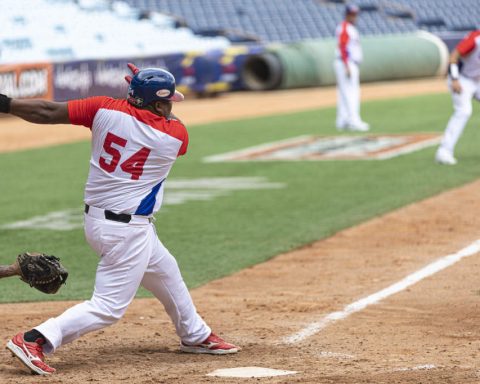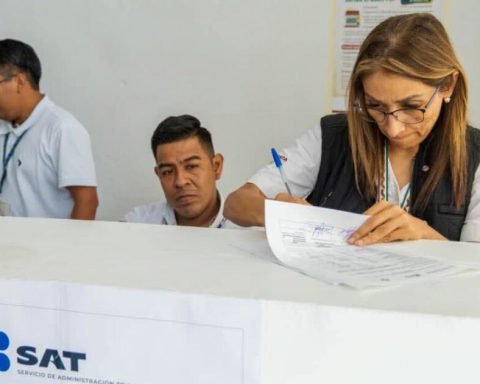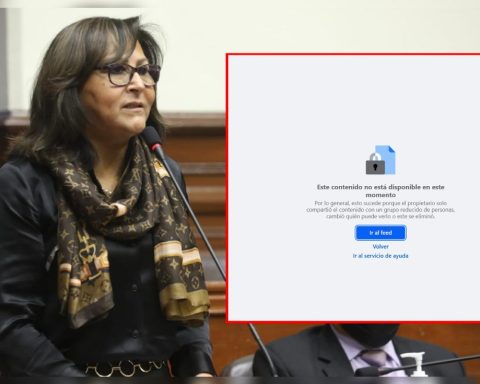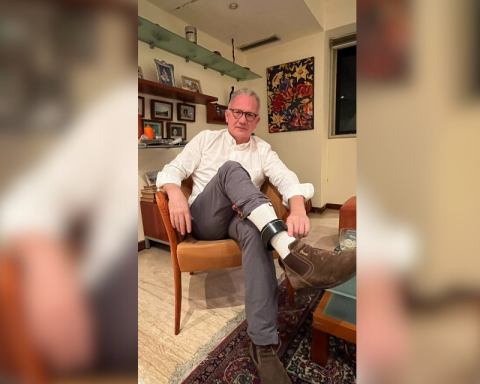SANTO DOMINGO.- The foundation and the family of the national hero Francisco Alberto Caamaño Deñó established their position on the death certificate issued by the Central Electoral Board (JCE), almost 50 years after the death of the former president of the Republic, which establishes that the cause of death was homicide by gunshot wound.
Caamaño Deñó’s partner, Vicenta Vélez; his youngest daughter Tania Quisqueya Caamaño Vélez; his grandson Salvador Paradas Caamaño; the president of the foundation in the National District, Tony Cabrera; the head of the Santo Domingo Este subsidiary, Reinaldo Torres and the son of Claudio Caamaño Grullón, Claudio Caamaño Vélez, executive vice president of the entity, offered the information during a press conference in the Orlando Martínez Hall of the Dominican College of Journalists, in which highlighted the message sent by the official issuance of the document.
Vicenta Vélez stressed that the Dominican people should know the importance of the aforementioned death certificate, because 50 years have passed to say that Caamaño Deñó died, a situation that she defined as historical.
“That document establishes that Caamaño died of homicide by bullet impact, which means that it was a crime, because in this country there is no firing squad and there is no death penalty. If he died because he was wounded by a bullet, it was a State crime and it is necessary to establish who he was, how he was and what was done to make that happen, ”Vélez argued.
In this sense, he said that the official information on the death of the leader of the April Revolution of 1965 opens the doors of an investigation in this regard, as well as his companions who were assassinated.
“It is time that, if this country is changing, we begin to do justice to the men and women who have given their lives, and have made an effort so that we can get to where we are now,” he said.
On his side, Claudio Caamaño Vélez specified that the State is jointly and severally responsible for the crime, which took almost half a century to make official.
“Francisco Alberto Caamaño was captured alive and was a prisoner of war, protected by the Geneva Convention, and he was executed. The Dominican State murdered him and justice must be done, not only criminal, but also historical, ”he indicated.
He stressed that State crimes are imprescriptible, so the family is in talks with lawyers to determine the action, which in principle includes an approach to the Public Ministry and the Executive Branch to see if the State is committed to hearing the case; otherwise, they resorted to international bodies in search of justice.
In addition, he advocated for the creation of a truth court in the country, arguing that justice has not been done in many cases such as the murder of the Mirabal sisters, the journalist Orlando Martínez, and the crimes of the dictator Rafael Leonidas Trujillo and the former president Joaquín Balaguer.
Finally, he valued the management of the JCE and especially of Judge Dolores Fernández for responsibly assuming an investigation to create a file from which the death certificate subsequently emanated.
